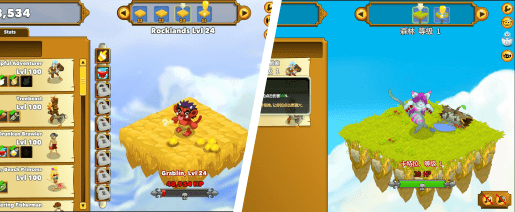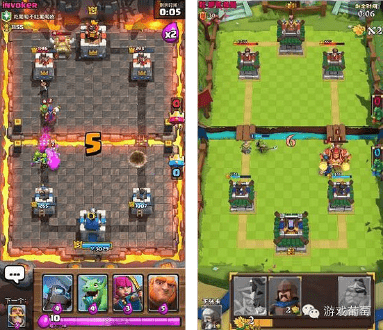The following story originally appeared in Chartboost’s quarterly Power-Up Report. This edition decodes how mobile game developers can build successful businesses in China.China’s mobile game ecosystem is infamous for its culture of “copycatting” or “cloning.” While Western culture mostly acknowledges individual ownership over things like characters, art and game mechanics, in China ownership rights are a theoretical notion at best. There are a ton of copycats [in China]”, says Matthew Leopold, business development and marketing director at China-based publishing company Yodo1. But there are no real anti-piracy legislation in place. Fighting copycats is always an uphill battle.”But developers should be careful not to approach copycatting practices overly simplistically in the East. Not all Chinese players are comfortable with knockoffs, and not all successful mobile games are clones. The causes of copycatting in China are complex and worth a closer look.
In China, cloned games are but symptom
Launching a mobile game in China involves regulatory and business complexities, so western devs often delay a Chinese launch. The result? Chinese gamers are forced to wait for games they want to play, or don’t know that the original exists and copycat developers happily exploit the temporary vacuum.That makes copycatting, first and foremost, a timing issue. If western developers launched their games immediately in China, in many cases those games wouldn’t be successfully cloned. In fact, many Chinese users actually don’t approve of copycats, according to Nicolas Gilot. Gilot is a product manager at AppInChina, a company that helps foreign companies launch their apps in the Chinese market.

“Copycats create a bad reputation for China,” Gilot says. “But [players] don’t have a choice, if copycats are the only thing there.” So stories continue to appear bewailing cloners: developer Playsaurus, for instance, reported that copycat devs released their game in China and got half a million plays ahead of Playsaurus’s own planned launch.Without this imbalance of demand and availability, westerners might be surprised by just how passionate Chinese players can be about original IP. A particularly strong segment are fans of Japanese anime, comics and games called “er ci yuan” fans, a loosely organized community that connects through a variety of streaming websites and forums. They are firm supporters of IPs they favor and strongly prefer originals over copycats,” explains Shanshan Cao, senior market analyst of China at mobile intelligence company Newzoo.
Clones offer competitive players a fresh start
A cultural factor contributes to copycat game adoption in China: the natural competitiveness of Chinese gamers. Chinese schooling teaches kids to be competitive. In games, this translates to heavy competition in individual performance-based game systems such as leaderboards, as opposed to most western games that compete primarily using guild or clan systems.

Image via PlaysaurusThe side effect? Each copycat on the market allows players a fresh start, an opportunity to join another competition and come out on top. Even successful games tend to structure themselves to give more competitive opportunities to incoming players. In China, [devs will] make a new server every few weeks because it allows a fresh start,” Gilot says. “Players then spend as much money as possible to become No. 1.”
App store fragmentation exacerbates cloning
It can be nearly impossible to uproot copycats, though this isn’t a sign of Chinese intransigence so much as of a wildly overgrown market. In most of the world, a company only has to ask Apple and Google to eradicate a clone, whereas China has 60 to 70 app stores to petition. And often, those app stores may see little reason to help. Let’s say the copycat makes multiple hundreds of millions a month,” says Shlomo Freund, founder of AppInChina. The platforms are motivated to protect games that are making money. The effort may not be worth the payoff.” As a result, devs don’t need to look far to find games that copy entire games as a whole like clones of Supercell’s Clash Royale.

Image via JiemianChinese players love established IP, in fact, China’s most popular games of 2016 are based on established IP. But foreign developers have to be fast to beat copycat devs to the punch. With the popularity of all-in-one game development platforms, AppInChina reports that copycatting is happening faster than ever, as specialty Chinese devs have learned to quickly clone game code and assets.



